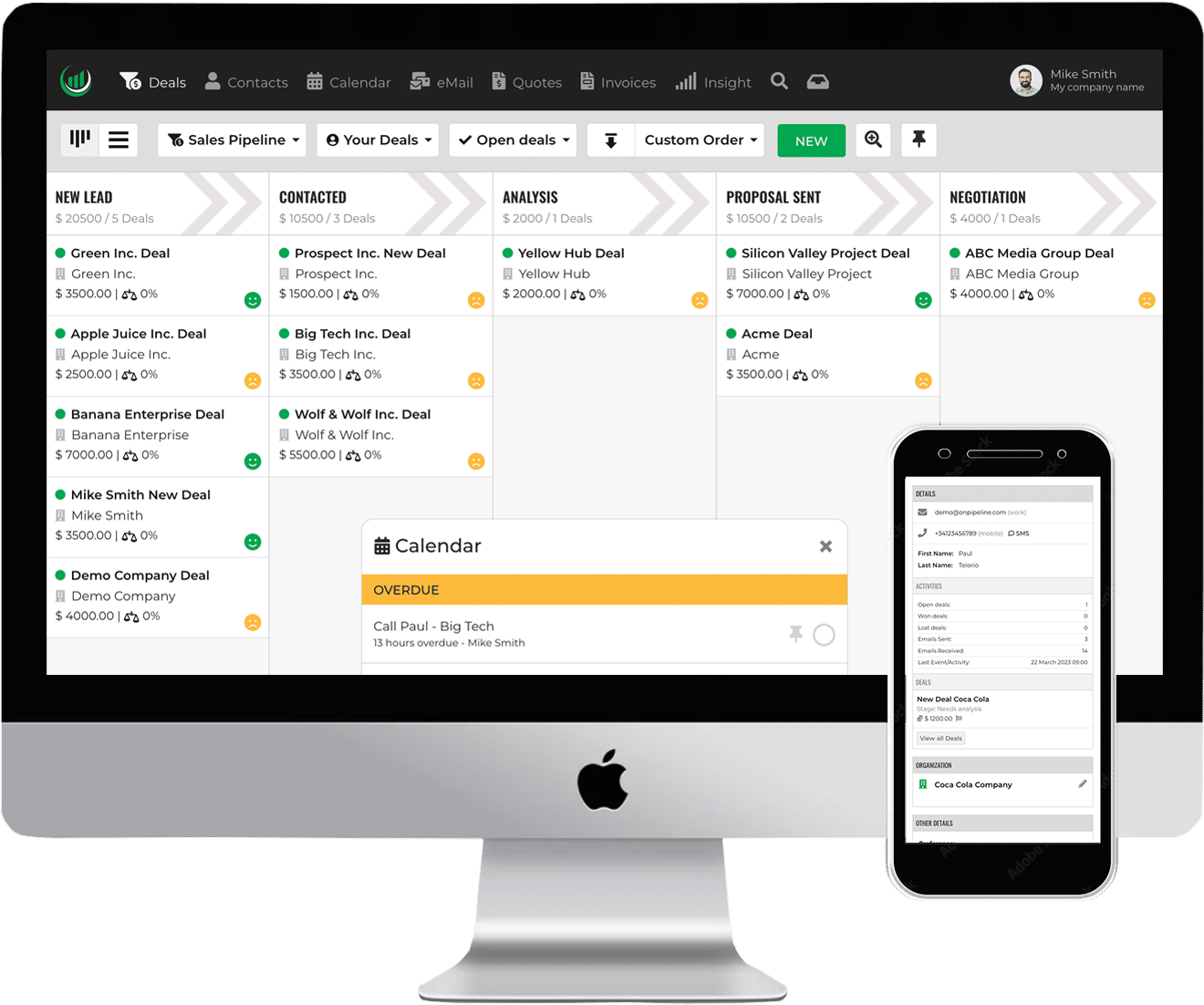Focus on lead generation and maintain a clear, efficient sales process, with the help of a CRM system. Embrace the digital frontier and watch your business flourish.
Small vs. Large Business
Online marketing is all about promoting your business and its offerings on the internet. Regardless of the size of your enterprise, your objectives remain the same:
Brand Awareness: The first and foremost objective is to create a presence for your brand in the digital realm. This involves ensuring that people know about your business and what it offers – Read more about the impact of brand awareness
Lead Generation: The process of attracting potential customers who express interest in your products or services is central to online marketing. Generating and nurturing leads is critical for your business growth.
Sales and Conversions: Ultimately, your online marketing efforts aim to convert these leads into paying customers. Sales and conversions are the lifeblood of your business’s financial success.
Online Marketing Channels
There are a multitude of online channels available, each with unique strengths and suitability for different objectives:
Social Media
Platforms like Facebook, Instagram, Twitter, and LinkedIn offer excellent opportunities to build brand awareness. Engaging with your audience on social media can foster brand loyalty and is also ideal for running sales promotions.
Search Engine Optimization (SEO)
SEO is the art of optimizing your website to rank higher on search engines like Google. It’s an effective way to boost brand visibility and attract organic traffic, which can be particularly valuable for long-term success.
Pay-Per-Click Advertising (PPC)
Platforms such as Google Ads, Bing Ads, LinkedIn (especially beneficial for business-to-business or B2B), and other industry-specific vertical portals allow you to place ads that attract targeted traffic to your website. This can serve both brand exposure and direct sales purposes.
Email Marketing
Email campaigns are a powerful tool for generating leads (prospects). Effective segmentation is key, especially when your products or services are tailored to specific customer. It allows you to maintain a consistent and highly personalized relationship with your audience, ensuring that your messages are relevant and engaging.
Content Marketing
Valuable content, such as blog posts, videos, and infographics, plays a pivotal role in establishing your brand as an industry authority. This kind of content not only attracts more traffic to your website but also, over time, nurtures these visitors into loyal customers. By consistently offering valuable insights and solutions, your brand gains trust, making it more likely for visitors to convert into customers
The Sales Funnel
Any business should keep a clear vision of its sales funnel. Your sales process can be visualized as a funnel, and online marketing has a vital role to play at each stage:
Top of the Funnel (TOFU): This stage is all about creating brand awareness and attracting potential customers. Content marketing and engaging on social media platforms are effective strategies for drawing people to your website.
Middle of the Funnel (MOFU): At this point, you’re working to convert website visitors into leads. Strategies like offering lead magnets, such as eBooks, webinars, or newsletters, encourage visitors to share their contact information.
Bottom of the Funnel (BOFU): The bottom of the funnel is where the magic happens – the sales pipeline. At this stage, your aim is to guide leads towards making a purchase. Implement email marketing, retargeting ads, and clear calls-to-action (CTAs) to facilitate the conversion process.
Lead Generation
Lead generation is the process of identifying and capturing potential customers who have expressed interest in your products or services. To ensure that your leads are effectively nurtured and converted into paying customers, it’s crucial to have a well-defined sales process and, if possible, a CRM platform.
CRM software in a small business serves as the backbone of customer management strategy. It helps you organize and track leads, customer interactions, and sales opportunities. You can ensure that no lead falls through the cracks, and you can provide a personalized experience to your customers, ultimately driving more sales.
Do-It-Yourself vs. Hiring
A critical decision you’ll face as a small business is whether to handle your digital marketing efforts yourself or enlist the services of a digital marketing agency. Let’s explore the advantages and disadvantages of both approaches to help you make an informed choice:
Do-It-Yourself (DIY)
Pros:
Cost-Effective: One of the most significant advantages of DIY online marketing is its cost-effectiveness. You won’t have to allocate a portion of your budget to an agency, making it an attractive option for businesses with limited funds.
In-Depth Knowledge: By diving into DIY marketing, you can acquire valuable knowledge about online marketing strategies and tactics. This knowledge can serve you well in the long run.
Control and Flexibility: You have complete control over your marketing efforts, allowing you to make quick adjustments and adapt to changing market conditions without external approvals.
Cons:
Time-Consuming: Learning and executing effective online marketing strategies can be time-consuming. As a small business owner, your time is precious, and managing marketing may divert your focus from core business operations.
Learning Curve: The digital marketing landscape is constantly evolving. Staying updated with the latest trends, algorithms, and tools can be challenging for someone with no prior experience.
Limited Resources: Smaller businesses may have limited resources, both in terms of time and personnel. This can limit the breadth and depth of your marketing efforts.
Hiring a Digital Marketing Agency
Pros:
Expertise: Digital marketing agencies employ professionals with specialized skills in various aspects of online marketing. They have the expertise to create effective strategies tailored to your business.
Time Savings: By outsourcing your digital marketing, you free up valuable time to concentrate on your core business activities, improving overall productivity.
Access to Tools and Resources: Agencies often have access to premium marketing tools and resources, which can result in more effective campaigns.
Cons:
Cost: Hiring a digital agency involves costs that may strain your budget, especially if you’re a small business with limited financial resources.
Less Control: While you collaborate closely with the agency, you may have less direct control over your marketing campaigns compared to a DIY approach.
Potential Misalignment: There is a risk of misalignment between your brand’s identity and the agency’s approach. Effective communication and clear expectations are crucial to mitigate this risk.


